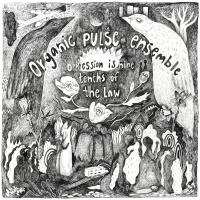Globalization Opens New Doors For Niche Artists
For decades music executives and even artists themselves have shied away from many musical niches because their potential audience was too small to achieve an acceptable level of success. But now. with the global marketing and sales reach offered by the int coupled with affordable world travel, is any niche really too small to find audience?
While certainly not as small as some musical niches, classical music has been considered dead or dieing for more than a decade. Younger audiences simply have no interest . But despite tthe death sentance, the world's most successful male touring artist for the first half of 2009 was classical musician Andre Rieu according to Billboard. He ranked number 4 overall with 554,242 tickets sold and $57.4 million in gross revenue with only Madonna, Tina Turner and Britney Spears grossing more Rieu had already clinched the 8th position on Pollstar's 2008 touring chart.
It took Andre Rieu 30 years, but his success is truly global. In the last 12 months, his 55 piece Johann Strauss Orchestra has toured Japan, Australia, all over Europe and just completed a 35 city tour in the USA and Canada. He is currently making plans to tour South America, South Africa, United Kingdom, and Portugal. Rieu, who is fluent in several languages, always addresses the audience in their native language.
And being a global niche phenomenon is not unique to Andre Rieu. Many world music artists have parlayed niche success in their home markets into global careers. If it takes 1000 or 10,000 or even 100,000 true fans to build a lasting career; it matters far less than it once did if those fans live in one city or several thousand.
For decades music executives and even artists themselves have shied away from many musical niches because their potential audience was too small to achieve an acceptable level of success. But now. with the global marketing and sales reach offered by the int coupled with affordable world travel, is any niche really too small to find audience?
While certainly not as small as some musical niches, classical music has been considered dead or dieing for more than a decade. Younger audiences simply have no interest . But despite tthe death sentance, the world's most successful male touring artist for the first half of 2009 was classical musician Andre Rieu according to Billboard. He ranked number 4 overall with 554,242 tickets sold and $57.4 million in gross revenue with only Madonna, Tina Turner and Britney Spears grossing more Rieu had already clinched the 8th position on Pollstar's 2008 touring chart.
It took Andre Rieu 30 years, but his success is truly global. In the last 12 months, his 55 piece Johann Strauss Orchestra has toured Japan, Australia, all over Europe and just completed a 35 city tour in the USA and Canada. He is currently making plans to tour South America, South Africa, United Kingdom, and Portugal. Rieu, who is fluent in several languages, always addresses the audience in their native language.
And being a global niche phenomenon is not unique to Andre Rieu. Many world music artists have parlayed niche success in their home markets into global careers. If it takes 1000 or 10,000 or even 100,000 true fans to build a lasting career; it matters far less than it once did if those fans live in one city or several thousand.






















